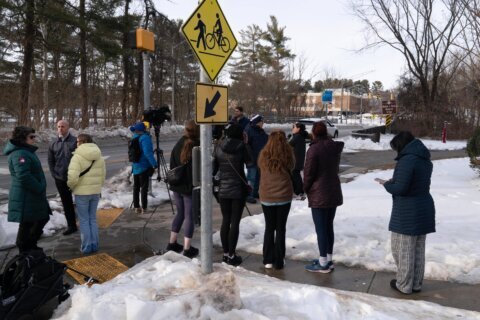School officials in the D.C. region are urging parents to keep their kids reading and practicing math this summer, to avoid what they call a “summer slide” in academic performance when classes resume in the fall.
Peggy Pugh, chief academic officer for Montgomery County Public Schools in Maryland, said research suggests students who don’t learn or engage in learning over the summer lose up to about a month of what they learned the previous school year. In the aftermath of the pandemic, which set some students’ progress back, she warned that the stakes are high.
School leaders are recommending kids read four to six books over the summer, practice math and have experiences that they can connect with upon returning to school.
“We’ve got a lot for you every year when you come to school, and we want you to start out on square one and not behind, so that we can take you as far as we have for our curriculum each year,” said Aimee Monticchio, principal at Langston Hughes Middle in Fairfax County, Virginia.
Through diagnostic tests given at the start of the new school year, teachers are able to see when students are at a different level in September than they were in June. At Langston Hughes, Monticchio said the school has a reading list on its website. Reading four to six books over the summer, she said, should help keep kids at the reading level they were at by the end of the school year.
Monticchio also said parents should talk to kids about what they’re reading. Fairfax County Public Libraries have a summer bingo activity, she said, “so you have to share aloud a book or story or article with your family or someone, read a nonfiction book, visit a bookstore, go outside and read.”
Practicing math, according to Annandale Terrace Elementary Principal Ingrid Badia, doesn’t have to take much time or thought.
“There are things with math that students can be doing all day, every day, from cooking, to going to the dollar store, playing a lot of board games, that’s a lot of math in there,” Badia said.
Ensuring kids have experiences over the summer, Badia said, could also help them in the fall, enabling them to make real-world connections to things they’re learning in school.
“Experiences such as just going outside to play, riding their bikes, swimming, anything that’s going to help them when they come back to school make a connection with,” Badia said.
There are also many math games for students to choose from, Monticchio said, and some beach rental homes may even come with a deck of cards.
For students learning a language in school, Monticchio recommends visiting a restaurant where a server may speak that language.
In addition to reading and using math daily, Pugh, with Montgomery County schools, said it’s important to write, too.
“I would encourage journaling, or doing science experiments and observing and writing the things that you can observe just to keep in practice,” Pugh said.
Maryland’s largest school system also has a list of free online resources on its website.
Monticchio and Badia said parents should also consider limiting screen time in exchange for time outdoors or time with others.
“You need that human interaction to be able to problem solve,” Badia said.
For Pugh, there’s a sense of urgency in making sure students don’t fall behind.
“If there are gaps in learning that were caused generally by the pandemic, those things just tend to get larger if we’re not practicing using the skills that we’ve learned,” she said.








